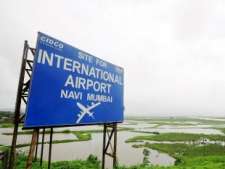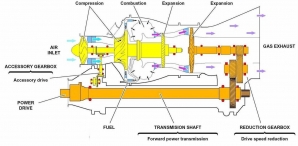Business jet operators demand separate rule in new aviation policy
Monday, 30 November -0001 00:00

NEW DELHI: General and business aviation operators have urged the Government to put in place separate regulations for the Scheduled Commuter Airlines
(SCA) before finalising the much-awaited new aviation policy.
Besides, the operators have also sought from the civil aviation ministry to issue guidelines for code sharing between SCA and scheduled airlines.
"The requirement to prepare separate regulations (Civil Aviation Requirement) for Scheduled Commuter Airlines should be put in place before the new
policy is implemented," Business Aircraft Operators Association (BAOA) said in its response to the Government's draft remote connectivity policy.
The Civil Aviation Ministry had on March 18 circulated the draft policy for stake holders consultations with the last date for response being yesterday.
According to the BAOA, there is no way SCA would take-off without proportionate rules being issued as per the size, weight,
passenger capacity, area of operations among others.
In the proposed policy, the Government has sought to done away with the regional scheduled airline category and in place allow them convert
into scheduled, or scheduled commuter airline after three year of their operations.
At the same time, there is also a proposal to allow non- scheduled operators convert into a scheduled commuter airline or a charter operator
after one year of operations.
The Association has also urged the ministry to issue guidelines for code sharing between SCA and SA, adding that it may also advise SA on how to
share operational arrangements and functions with SCA, especially at metro airports, in coordination with airport operator.
Code share arrangements would be allowed between scheduled airlines and scheduled commuter airlines, and SA may have any commercial arrangement
with SCA where all operational arrangement and functions may be shared between them under the proposed norms, BAOA said.
Scheduled airlines may have arrangements with any other airline, where deployed capacities may be adjusted among themselves to meet mandatory
operations, according to the norms.
The Association has also recommended that SCA be provided with all the support in terms of zero landing and parking charges.
Dedicated regional SCA Hubs (other than metros) should be created at around 20 airports, as suggested earlier by BAOA, to have adequate MRO and night
parking facilities for SCAs, the association said in its response
Read more...
Navi Mumbai International Airport likely to get key land approval in 3 weeks
Monday, 30 November -0001 00:00

MUMBAI: Prime Minister Narendra Modi's office is taking keen interest in crucial decisions related to the proposed Navi Mumbai International
Airport and a key approval is now expected in less than three weeks, said two people familiar with the development.
The approval is for handing over 250 hectares of land at Sudhagad in Raigad district by the City and Industrial Development Corporation (CIDCO),
the nodal agency for the development of the proposed airport, in lieu of 108 acres of mangroves that will be taken over for the project.
The Prime Minister's Office has put the proposed project in the new governance programme, Pragati -- Proactive Governance and Timely Implementation.
According to CIDCO officials, it has already received permission for the Vadghar project, meant to rehabilitate people displaced by the airport project.
"Things have been moving quite fast since the Prime Minister's office is now directly connecting with the chief secretary of Maharashtra
with regard to Navi Mumbai International Airport project," CIDCO managing director Sanjay Bhatia told ET. The chief minister has also set
up a war room and this is also helping in better inter-departmental coordination."
Bhatia, who spoke on the sidelines of a conference organised by think tank Mumbai First, declined to comment on the likely timing of the approvals.
Permission for the rehabilitation project was delayed as CIDCO had to obtain approval from the Maharashtra Coastal Zone Management Authority
CIDCO is likely to get approvals for the proposed Pushpak Nagar township close to the airport in the next few days, the people said.
The Navi Mumbai airport has been delayed primarily because of issues of land acquisition from villages, which led to skepticism from infrastructure
developers. The government had initially approved setting up the airport in 2007.
It was supposed to be completed by 2015 and is likely to be ready by December 2018. Planned as an alternative to Chhatrapati Shivaji International
Airport located across the Mumbai suburbs of Santa Cruz and Andheri, the Rs 14,573-crore Navi Mumbai airport project is likely to be completed in
four phases. The airport will span an area of 2,867 acres with a terminal building of 5,23,000 square meters and two runways.
Four companies have made initial bids for the airport: GMR, GVK, the Tata Group in a tie up with Ferrovial, and Hiranandani Group in
partnership with Zurich Airports. Bhatia recently said the project should be awarded by December. The delays and uncertainty over land
acquisition led global airport developers such as Fraport to stay away from the project. Fraport owns 10% of the GMR-led Delhi International Airport.
Experts have said the success of the airport depends on allied transportation services and routes, including the 22-km trans-harbour link
connecting the main city and its satellite arm. UPS Madan, commissioner of the Mumbai Metropolitan Region Development Authority,
said recently that given the timely financing, the Rs 11,000 crore link may be completed along with the Navi Mumbai airport.
Read more...
Our Packages



News & Events
Chennai International Airport completes its first phase of flood-proofing after deluge last year. Is it enough?
Monday, 14 November 2016 05:40
The employees of the Chennai International Airport can’t forget how water engulfed the tarmac on December…Nine flights diverted over Delhi smog
Monday, 07 November 2016 05:49
JAIPUR: Nine flights, including three chartered planes were delayed by 4-5 hours from landing in Delhi…From The Blog

